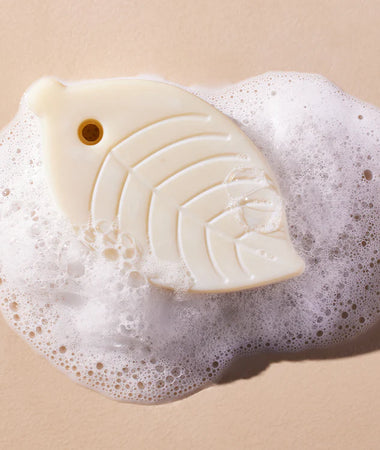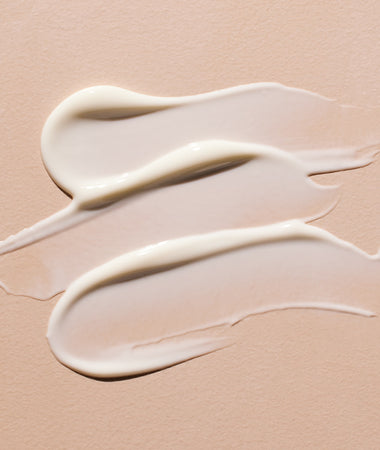
Newborn Won't Stop Crying? Here's What You Can Do
For their small size, babies can let out quite a scream! All babies cry for one reason or another, especially in the first several weeks. So, as an exhausted parent, what are you to do when your newborn won’t stop crying?
In this article, we’ll help you figure out why your baby might be crying and give you 15 tips for calming your crying newborn when nothing else seems to work.
Table Of Contents
Reasons Your Newborn Won’t Stop Crying

Most of the time, it feels like all newborns do is eat, sleep, dirty their diapers, and, of course, cry!
Usually, babies cry for a specific reason. If you know why your baby is crying, you’ll have a greater chance of helping them to feel better and calm down.
Thankfully, most babies have different cries for different needs, so you can start to figure out what they’re trying to communicate. Before long, you'll be a pro at translating your baby's cries!
In the meantime, here are some of the most common reasons your baby might cry.
Hunger
Remember that newborns need to eat frequently — every couple of hours! Their tummy is tiny, so they can only eat a little at once.
Since babies can’t use words to tell you when they’re hungry, they may cry to let you know. A bottle or breastfeeding session may be all they need.
Here are a few other signs that your baby might be ready to eat:
- Smacking their lips
- Putting their fist in their mouth
- Rubbing their hands on their mouth
- Turning their head towards your chest
- Rooting (searching for food with their mouth)
If you notice these signs, offer your baby your breast or a bottle. If they aren't interested, chances are there's another reason for their distress.
Discomfort
Your crying baby might be sitting or lying in an uncomfortable position and let out a cry to let you know.
It could also be that they’re too hot or cold. Babies often get cold when you change their diaper or give them a bath, and they may be hot if they have one too many layers on.
Adjust your little one’s position to make them comfortable. Also, check to make sure they aren’t too hot or too cold and adjust their clothing accordingly.
To better assess their temperature, place one hand gently on their chest. If their skin feels too warm or hot to the touch, they might be too warm. Alternatively, if their skin feels chilly or clammy, they might be too cold.
Sleepiness

Just like your newborn eats around the clock, it will also seem like they sleep around the clock. That’s because it’s kind of true!
Babies need to sleep around 14 to 16 hours every day. Your newborn might cry to let you know that they’re sleepy and ready for a nap.
The best thing to do is learn your little one’s signals so you can anticipate when they will be tired and put them in their crib before they start wailing. Otherwise, they’ll wind up being overtired, which can also lead to them crying more.
If your baby is tired, here are some other signs to watch for:
- Yawning
- Fussing
- Their eyes become droopy or half-closed
- Pulling their ear
- Scrunching up their face
Once you know they’re sleepy, put them in their crib or bassinet for a nice nap.
The Witching Hour
If your little one is fussy during the same time every day, you may be dealing with the witching hour. That's the time of day when your baby seems to cry more than usual. For some babies, this can be in the late afternoon or early evening.
During the witching hour, your baby may be fussy and irritable for no apparent reason. This can be frustrating for both you and your little one!
The good news is this stage doesn’t last forever. It usually goes away by the time your baby is a few months old. In the meantime, try some of the tips later on in the article to help calm your baby during their fussy time of day.
Bloating And Gas
When your newborn swallows air while they drink milk, air bubbles can get stuck in their tummy and cause gas. This can be painful and make your baby cry.
Bloating and gas aren’t usually cause for concern, but they can make your baby uncomfortable and might be the reason for their crying. To prevent this, burp your little one after every feeding session!
If you suspect your baby is gassy, you can gently push on their tummy. If it feels hard, that's a good indication that they have some trapped air waiting to come out.
A Wet Or Dirty Diaper

The other thing babies seem to do all the time? Pee and poop!
Your baby will wet or dirty their diaper frequently and may cry to have it changed. Sitting in a wet or dirty diaper can be especially uncomfortable for your little one if they have diaper rash.
Keep your baby’s bottom clean and fresh by changing their diaper frequently. Not only is it uncomfortable to sit in a wet diaper, but it also puts your baby at risk for developing diaper rash.
To keep them in tip-top shape, apply Mustela’s Diaper Rash Cream 1 2 3 every time you change your little one!
Feeling Scared Or Overwhelmed
Your newborn has emotions just like you, and since they’re fresh out of the womb, everything is new to them! They may feel scared or overwhelmed by what’s going on around them and cry in response.
Take a look to see if there’s something that might make your baby frightened or anxious. And remember, your baby picks up on your emotions, so if you feel stressed, they might, too!
Illness Or Pain
Babies can get sick with a variety of illnesses that make them fuss and cry more than usual. They can also experience pain, especially when cutting new teeth or fighting an ear infection.
Clothes that are too tight, hair wrapped around a finger, or a tag in their shirt can also cause pain and make your baby cry. So, check to see if there’s anything like this bothering them.
If your baby is still not acting normal and your parental intuition is telling you that something is not right, call your pediatrician to discuss your baby’s symptoms.
Boredom

Have you ever felt so bored you wanted to scream? Well, your baby might feel the same way!
Babies can get bored just like anyone else. They may even cry from boredom if they’re not being stimulated or engaged.
To keep your little one entertained and content, try playing a quick game of peek-a-boo, reading them a book, or singing a silly song. You can also try a change of scenery by taking them for a walk outside.
Overstimulation
On the flip side, babies can also get overwhelmed by too much stimulation. If there’s too much going on around them, they may start to cry. This often happens when you're in a new environment or surrounded by new people.
To avoid overstimulation, keep things calm and relaxed when you’re around your baby. For example, turn off the TV, dim the lights, and avoid loud noises. You can also try wearing soft clothing and talking in a gentle voice. This can help your baby feel safe again.
Colic
Finally, if none of the above seems to be the cause of your baby’s crying, they might have colic.
The American Academy of Pediatrics (AAP) says, “If the crying does not stop, but intensifies and persists throughout the day or night, it may be caused by colic.”
Colic is defined by its main symptom: intense and unexplainable crying. The cause is unknown.

The AAP goes on to note that colicky babies “cry inconsolably, often screaming, extending or pulling up their legs, and passing gas. Their stomachs may be enlarged or distended with gas. The crying spells can occur around the clock, although they often become worse in the early evening.”
If you think your baby might have colic, talk to your pediatrician.
All of that being said, even with the best care, sometimes newborns seem to cry for no reason! What can you do? Keep reading to find out.
How To Help When Your Newborn Won’t Stop Crying

Crying is your baby’s way of communicating with you, so it’s important to figure out why they’re upset. By paying attention to their cues, you can usually figure out what they need and help comfort them.
There are some things to try first when trying to calm your little one. For example, make sure your crying newborn is fed, burped, changed, and well-rested.
If they continue crying and you don’t know why, you’ll need a few tricks up your sleeve to help calm, distract, and soothe your sweet one.
We’ve got you covered! Let’s take a look.
1) Calm Yourself
A crying newborn can be quite frustrating for you as a parent. If you start to feel overwhelmed, take a few deep breaths to calm yourself down.
As mentioned earlier, your baby will know if you’re stressed! Ask for help from your partner or a friend if needed.
2) Hold Your Baby Close
Touch is very important for infants. Being held close can soothe them and help them feel safe and secure. Cuddle your baby, rub their back or tummy, and let them know you’re there.
Wrapping your little one in a swaddle is another way to make them feel snug.
3) Give Your Baby A Massage

A baby massage helps to soothe your little one and is great for their skin at the same time! What exactly is a baby massage? It’s simply using your fingers and hands to gently but firmly stroke your baby’s body in a calming way.
To get the full scoop on how to do it, check out our article here!
When you massage your baby, use a gentle lotion or baby oil, like Mustela’s Baby Oil. Composed of 99% plant-based ingredients, our protective baby oil blends effortlessly into the skin, creating a comforting massage experience for your baby. And it moisturizes your little one’s skin at the same time!
4) Carry Your Baby
We mentioned that cuddling your baby and holding them in your arms is one way to comfort them. Another way is to put them in a baby carrier or wrap.
This allows you to make them feel cozy, secure, and safe while keeping your hands free! Your baby might also be soothed by the constant motion of you walking around.
This is your chance to fix a cup of tea (or coffee) and take a deep breath.
5) Rock, Bounce, And Sway
Gentle movement can help a distressed little one calm down. Whether you’re holding your baby or have them in a carrier, try rocking, bouncing, or swaying.
Stand up and sway back and forth, or bend at the knees to bounce your little one up and down. Or sit in a comfy rocking chair and rock away!
6) Go For A Walk
When your newborn won’t stop crying, going for a walk or taking them outside might be just the ticket! The great outdoors can work wonders for a fussy baby and might help you relax as well. Plus, the lulling movement of the stroller can also soothe your baby.
If you venture outside, remember to armor up with sun protection!
For babies under six months old, provide them with shade, protective clothing, and the like. For babies older than six months, kids, and the rest of the family, lather up with Mustela’s SPF 50 Mineral Sunscreen Lotion.
7) Give Your Baby A Bath

A bath can be both relaxing and distracting when your newborn won’t stop crying.
Keep bath time safe for their delicate skin by using gentle products made with naturally derived ingredients, like Mustela’s Foam Shampoo For Newborns and Gentle Cleansing Gel.
Expert Tip: Baths can save the day in more than one way! If your baby has eczema, read our article about how to bathe your little one to avoid flare-ups.
8) Talk, Coo, Sing, And Shush
Don’t underestimate the power of using your voice to calm your little one. When your newborn won’t stop crying, talk softly to them, sing or hum, and make soft shh-ing noises.
If these gentle noises seem to calm your baby, consider using a white noise machine in their nursery. Newborns are used to the constant sound of being in the womb. When they’re born, things can get pretty quiet suddenly!
A white noise machine can help by replicating the whooshing noise they’re used to hearing, making them feel more comfortable and safe. You can also use an app to replicate this noise if you prefer.
Just make sure you pick something that has a volume control. That way, you can ensure it’s not too loud for your baby’s delicate ears.
9) Distract Your Newborn
When your baby is crying, sometimes distracting them is the name of the game!
Need some ideas? Make funny faces for them, read a baby book, put them in front of a mirror, or let them look outside the window. You can also try showing them a colorful toy or mobile.
Another distraction is making a funny noise. But beware, some babies might get scared by this and cry harder. If that happens, quickly stop and try something else.
10) Try A Pacifier
Babies like to suck a lot, even if they aren't hungry. Sucking is soothing for them, and the action can help calm a crying baby. If your little one takes a pacifier, try offering it to encourage them to self-soothe.
You can also let them suck on a washcloth or gnaw on a teether if they aren’t used to pacifiers.
11) Change Their Clothes

Even though baby clothes are cute, they aren't always comfortable. Sometimes, the fabric feels itchy, the clothes are too tight, or the outfit just isn't sitting right. If you think your baby's clothes might be bothering them, try changing them into something else.
Stripping them down also allows you to check for bug bites, rashes, or other irritations that might make them cry.
12) Try A New Burping Position
If your baby is crying and you think they need to pass gas, try changing your position. Sometimes, babies cry when being burped because the way you’re holding them doesn't allow their burp to get out.
If the traditional upright burping position isn’t working, try sitting them upright on your lap while supporting their head. While they’re sitting, carefully help them lean to one side and then the other as you gently pat and rub their back. This leaning can help them release air.
13) Let Your Baby Have Tummy Time
If your baby has been crying for a while and you can't seem to console them, try letting them have some tummy time. You’ll be changing their position and also their vantage point, which can help if your baby is feeling bored or uncomfortable.
To do tummy time, lay your baby on their stomach on a blanket or playmat. Put out a couple of toys for them to look at, and if you’d like, put on some fun music for background noise.
Once your baby gets used to tummy time, they might even start enjoying it!
14) Read A Book Together

We mentioned this briefly before, but reading can be soothing for both you and your baby. So when your newborn won't stop crying, try snuggling up with them and reading a book together.
Choose a short book with colorful pictures that will hold their attention. You can also try making up your own story using the pictures as prompts, instead of reading it word for word.
To keep your baby interested, change your voice for different characters and use a variety of facial expressions.
15) Walk Away
Sometimes after you've tried everything, the best thing you can do is take a break. If your baby is in a safe place, like their crib, and they're still crying, it's OK to walk away for a few minutes.
Use this time to collect yourself so you can come back and try again with a fresh perspective. We know it's hard to hear your baby cry, but sometimes a break is what you both need.
Remember that this stage won’t last forever. Soon enough, you'll be able to look back and laugh at the nights when your newborn wouldn't stop crying.
Important: Remember Never To Shake Your Baby
We know how frustrating it can be when your baby won't stop crying, but it's essential to never shake them. Shaking can cause serious injuries, including brain damage and even death.
If you're feeling frustrated, put your baby somewhere safe, such as in their crib or a playpen, and walk away. Crying alone won’t hurt your baby, and the time apart can help you regain control.
And if you ever feel like you can't handle it, please reach out for help. You are not alone! Plenty of resources are available to support you and your family, including hotlines like the National Parent Helpline (1-855-427-2736).
Hush, Little Baby

Sometimes, newborns cry for very specific reasons, like being hungry, sleepy, or sick. Other times, no matter what you do, your baby won’t seem to calm down.
When your newborn won’t stop crying, get creative and soothe them with one of the tips we listed above.
Snuggle your little one close, give them a baby massage with Mustela’s Baby Oil, go for a walk, make calming noises, or give them a bath with Foam Shampoo For Newborns and Gentle Cleansing Gel.
Learn what works to calm your little one, and be sure to give them plenty of kisses in the meantime!
- reg.
- $18.00
- Sale price
-
$18.00
- reg.
-
reg. $36.00
- Unit price
- /per
- reg.
- $22.00
- Sale price
-
$22.00
- reg.
-
reg.
- Unit price
- /per
Suggested Articles

The Characteristics Of Your Baby's Sleep

The Secret Of Baby Skin

Protecting Your Baby's Skin In The Winter
Get tips, news
and exclusive offers






